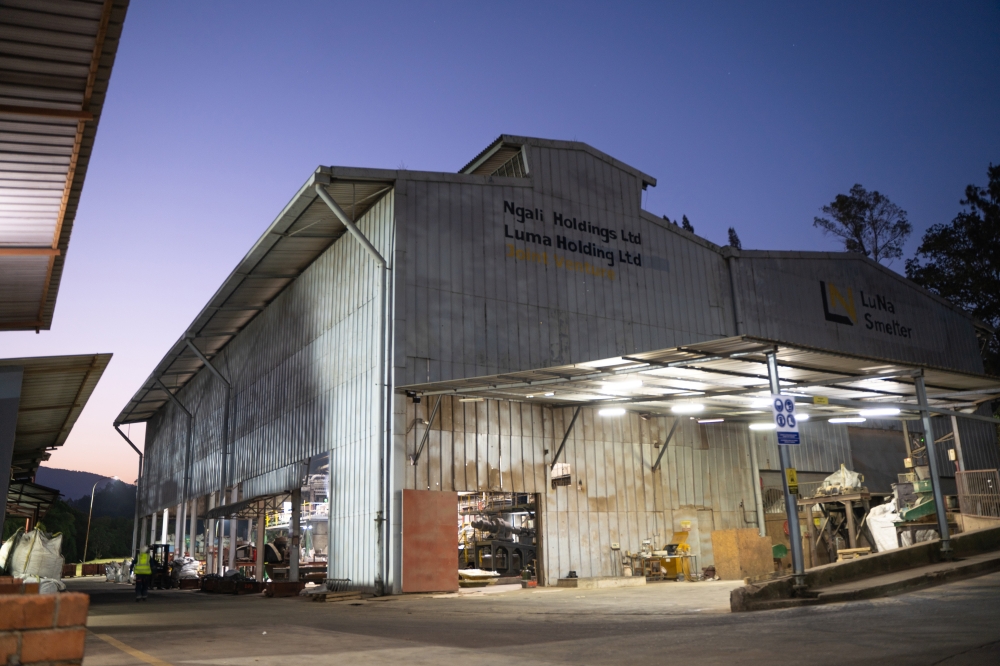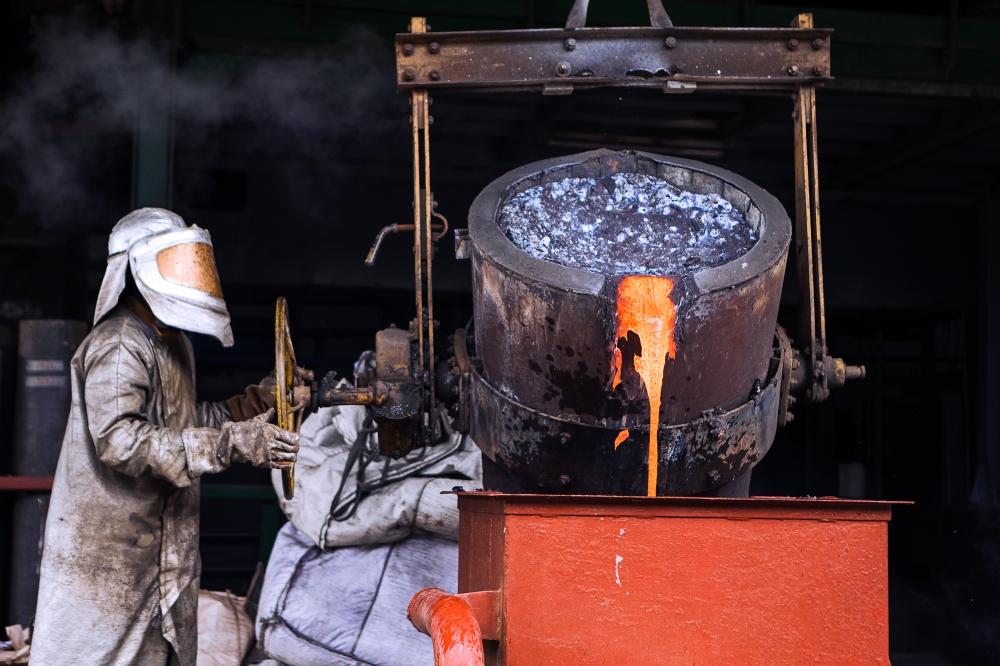

On the northern outskirts of Kigali stands Luna Smelter, the continent’s first tin smelter and a successful collaboration between European industrial giant Luma Holding and Rwanda’s conglomerate investment company Ngali Holdings.
Together, Luma and Ngali have transformed it into a highly efficient, modernised smelter utilising state-of-the-art technology and facilities to produce tin ingots that meet the international market standards set out by the London Metal Exchange.
Luna’s journey to success has been a testament to its resilience. The smelter, which had been closed since 2012 and its equipment and infrastructure neglected, was acquired by Luma Holding in 2018.
Partnering with Ngali, they invested in the necessary equipment and infrastructure, bringing the smelter back to life in 2019. Since then, it has been producing tin ingots continuously, a remarkable feat considering the challenges it had to overcome.


Aside from the technical challenges of transforming rocks into metal, Luna has faced significant challenges in managing its supply chain risks.
Tin is one of the four minerals classified as a "conflict mineral”, and under the guidelines of the Organisation for Economic Co-operation and Development (OECD), responsibility is placed on the smelter to ensure that the minerals entering the supply chain are not contributing to the financing of conflict nor supporting gross human rights abuses.
When Luna began its journey in 2018, several industry-backed traceability programmes were in operation, and Luna selected the International Tin Association’s ITSCI programme as its preferred traceability programme.
This was mainly due to ITSCI being recognised by the Responsible Minerals Initiative (RMI) as an upstream assurance mechanism, as well as being the traceability programme developed by the tin industry.
In 2022, ITSCI lost its recognition status, and according to the recent RMI announcement, ITSCI won't be eligible for recognition until 2026.
Under the ITSCI scheme, field workers from ITSCI are supposed to verify that a mine site has no OECD-defined risks (i.e. conflict-free), and in Rwanda, the scheme requires supply chain actors to pay a levy of $260 per tonne of tin mined.
Surprisingly, although ITSCI collects such high levies, the organisation does not certify or track minerals. Specially trained RMB officers do the complete job. Numerous investigations carried out by NGOs and the UN Group of Experts have shown the ITSCI scheme to be flawed. Over the years, Luna identified risks and gaps associated with ITSCI’s traceability programme and brought those to the attention of ITSCI.
The lack of controls in ITSCI’s programme posed an existential threat to the Rwandan Luna Smelter and its suppliers, as Luna’s customers and product end users (including Apple, Intel, Tesla, and others) require the smelter to be accredited by the Responsible Minerals Initiative to import tin ingots into the European Union or the United States of America.
So, it fell upon the ever-resilient management team at Luna to develop its own chain of custody (CoC) system and to obtain licensing approval from the Rwanda Mines, Petroleum and Gas Board (RMB).
In 2021, Luna’s CoC system was licensed by RMB and rolled out at selected mine sites in Rwanda. Luna has incorporated blockchain technology into its CoC system using Minespider as a technology provider.
Minespider has partnered with industry giants, such as Minsur and Google, to ensure that the minerals entering their supply are conflict-free, and it was on this basis that Luna felt it appropriate to introduce a higher level of technology into its CoC system.
By owning its own CoC system and having boots on the ground 24/7, Luna can engage with local stakeholders and assess the risks of conflict minerals entering its supply chain in real time.
Further, the CoC system is embedded into Luna’s organisational structure, and the costs of the CoC are carried out by the smelter. This allows Luna to conduct the due diligence requirements at the mine sites without forcing the miners to pay a levy for the services provided.
In this way, Luna is helping miners realise a greater return on their hard work, leaving more money in the pockets of the Rwandan miners that supply their cassiterite to the Kigali smelter.
Luna acknowledges the recent statement issued by the U.S. State Department regarding concerns about certain minerals from Eastern DRC contributing to ongoing conflicts.
However, through its track record and as verified by 3rd party audits, Luna has committed to the ethical and responsible sourcing of minerals. Luna agrees that increased in-region engagement and heightened due diligence by midstream and downstream companies are crucial for enabling consistent and adequate progress towards mitigating these risks.
As a member of the European Partnership for Responsible Minerals (EPRM), Luna has partnered with the EPRM to develop and implement a traceability training programme.
This programme includes capacity-building activities aimed at educating mine operators in the African Great Lakes Region on industry best practices for traceability, management of supply chain risks, and digitisation of due diligence data to increase transparency in the upstream tin supply chain.
With companies such as Luna, Rwanda can develop an industrial base and transform itself into a minerals processing and beneficiation hub in the region.

